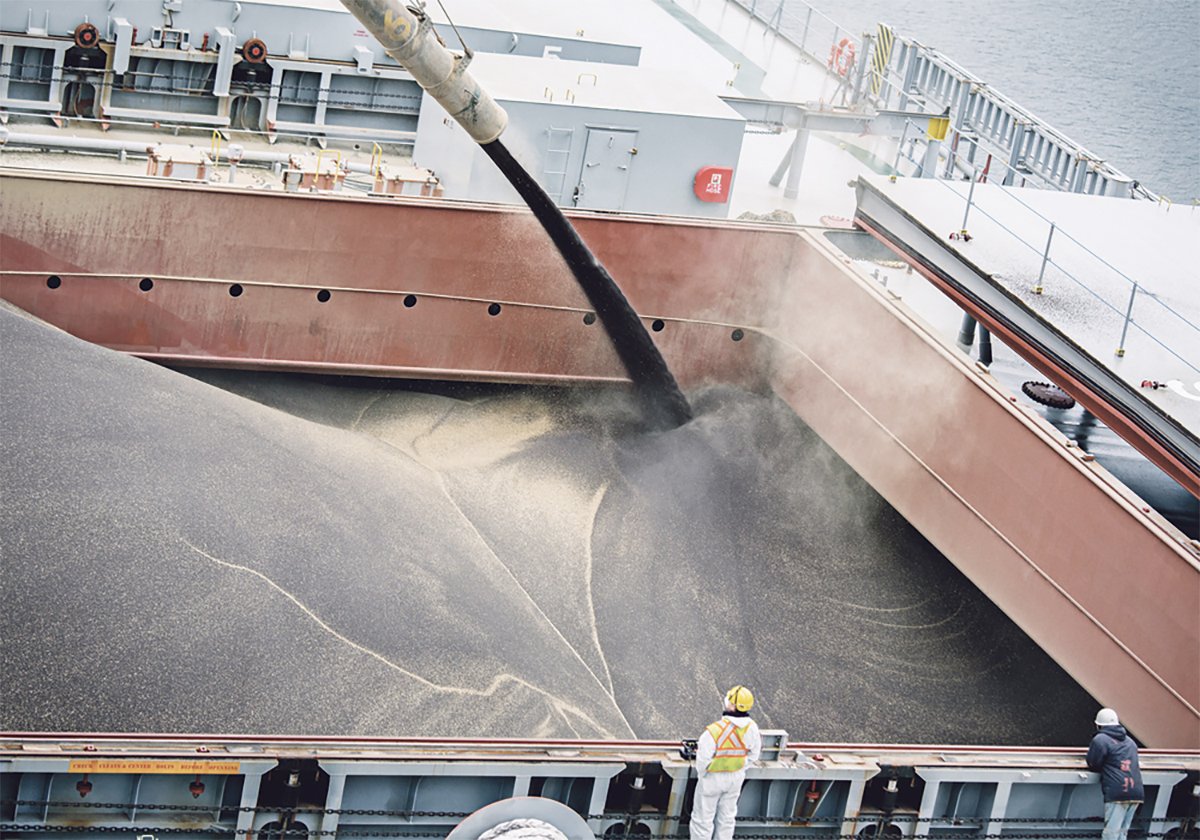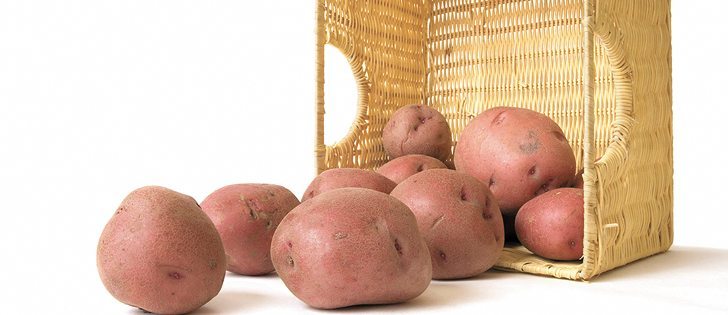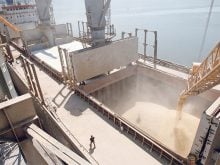The loonie may be under 80 cents but Canada’s relatively weak currency won’t encourage more potato acres this spring.
Potato growers in Prince Edward Island, Alberta and other provinces have already signed contracts with processors so acres across the country are unlikely to rise, said Kevin MacIsaac, United Potato Growers of Canada general manager.
“As for grower intentions (for acres), I think it’s going to be pretty close to last year,” MacIsaac said from his office in Charlottetown. “I don’t see any area that has been given new (additional) contract volume or new markets.”
Read Also

Exports off to a slow start after last year’s torrid pace
Canadian grain, oilseed and pulse exports are off to a slow start, but there are some bright spots, according to the Canadian Grain Commission’s most recent weekly export data report.
While most deals are complete, potato farmers in Manitoba and New Brunswick were still in negotiations with processing companies as of April 15.
“In the U.S., Maine is the only one that’s left (without a contract),” said MacIsaac.
“The contract has been down in some areas, both in the U.S. and Canada. Some areas in volume, some areas in price…. There’s no area that I know, which actually went up.”
North American growers may need to reduce acres of process potatoes, used to make french fries and other frozen products, because the market has softened.
“The french fry companies would say they need fewer french fries this year,” MacIsaac said. “I was at a meeting in the U.S. last week where they (companies) felt in North America that processing acreage should (drop) by five to seven percent, to match the fryer’s demand.”
The Western Producer contacted McCain Foods, a major player in the frozen potato industry, to find out why demand is down. The company didn’t respond by press time.
The weaker market may be connected to port problems on the U.S. west coast in 2014 and 2015.
A labour dispute between shipping companies, port operators and the longshoremen’s union lasted for months, strangling cargo movement at ports from Los Angeles to Seattle.
“They (french fry companies) lost some of their export markets last year, due to the Seattle port slowdown,” MacIsaac said. “We rely on that export market to drive (sales)… particularly the french fries out of the Western U.S. and Western Canada. They tend to be exported more.”
Demand for french fries produced in Alberta is higher when U.S. exports are strong. The Alberta product backfills the American market, compensating for exports of frozen potatoes from Washington state through west coast ports.
The port dispute may have cut into exports but the loss isn’t permanent, said Terence Hochstein, Potato Growers of Alberta executive director.
“In certain (export) markets it (demand) may not be increasing as fast as it has, but it is trending upwards.”
Looking ahead, exports to Asia and other regions will likely be the sole driver of growth in Canada and the U.S. because North American potato consumption is flat.
“Totally…. (exports are continuing to trend upwards,” Hochstein said. “(But) overall in North America there are too many processing potatoes out there (right now). So the system balance itself out, as far as pricing.”


















